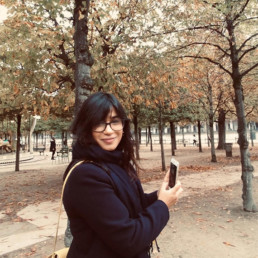
Written by Hana Malik
Hana Malik is currently an Associate Senior Leader, Head of English with a passion for social justice, diversity and equity.
It is rare that a school staff body will arrive at the same conclusion, at the same time, but it does happen and when it does, change becomes a moral imperative. Almost one year ago now, the majority of staff at my school met over zoom to discuss what could be done to move forward from the point at which we had arrived: the undeniable lived facts of institutional racism, which had been reiterated through the shocking and inhumane murder of George Floyd. Although our experiences, and that of our students, of living within a society whose structures determined obstacles, interventions and successes are different to that of our allies in the US, the moment we were now in was not too dissimilar. Disbelief. Exhaustion mingled with renewed faith. A quiet hope that this time, maybe, things would start to change. Perhaps, starting in our corner of East London, we could start to rebuild and begin to see a more equitable reality.
Getting People Talking
A few years ago, myself and a few close colleagues made the trip up to Aureus School for our first Diverse Educators conference. Inspired and buoyed, we quickly established a ‘#DiverseEd’ discussion group at our school. This has been running since then and last year it provided the platform for all staff to get talking.
The #DiverseEd session we facilitated soon after George Floyd’s murder is something I will not forget. Staff shared their personal experiences: there was no diversity in our leadership; there was sadness in delivering a curriculum to young people which was not representative; there was disillusionment that an inequitable education system could not be changed and there were many silences – heavy realisations that we had all been aware of these issues, and yet had not done more to improve things for our students or our colleagues. Important as well was the presence of the range of stakeholders including support staff, deputy headteachers and middle leaders.
These conversations have continued with staff members not afraid to sit for a while with their discomfort. As well as the #DiverseEd discussion group, we run an Anti-Racist Reading Group and each half term we encourage staff to read (watch or listen) to a key thinker. So far, we have explored ideas from individuals such as Kendi, Akala, and Eddo-Lodge. Highlights are shared with staff and students so that we can constantly underscore the importance of listening, questioning and unlearning. And, as the work, while incredibly difficult and often nebulous, continues, we know that if we keep listening and learning, we will continue to move forward.
Keeping People Working
Our East London school is a place where teachers are proud to work, and students are inspired to flourish. This has never been truer than in this last year. We have introduced new initiatives to establish DEI as part of our everyday practice and care.
As part of the pastoral curriculum, we have introduced a Community Calendar. This additional provision works on several levels. Not only does it expose students (and staff) to a range of celebrations and events, but it also encourages students to lead on sharing elements of their identity thereby feeling more and more like they belong. For example, we have collectively recognised Diwali and World Hijab Day; students got involved in creating assemblies, resources and leading their forms in celebrations. Within this we have also explored anti-racist vocabulary (such as privilege and microaggressions), run extra-curricular activities working with external parties such as The Black Curriculum and undertaken readings of ‘Black and British’ by David Olusoga to create a shared timeline of history.
While the pastoral curriculum offers regular and meaningful touchpoints to diversity and inclusion, heads of department have also begun reviewing their curriculum and teaching and learning (T&L). An evaluation of KS3 has led to changes to texts being taught as well as additions to texts (parallel or juxtaposing) to ensure students see learning as a supporter of diversity. Integral to this has been establishing a clear approach to DEI. We ensure our provision Represents, Reframes and empowers us to be Anti-Racist. This is supported through weekly T&L tips, specialised coaching, an action research group and DEI Champions.
Overall, we have seen an increase in student achievement points, student leadership points, development in schemes of learning, teachers feeling more confident in delivering and talking about key issues, and increased collaboration amongst staff. However, the most important thing we have achieved this year is putting into action some of the things we discussed last year. We have managed to find a way to keep DEI at the heart of what we’ve done (while also juggling all the usual school balls). We were clear about our commitment to change and we have remained committed to that change, and although there is a lot of work yet to be done, I know we will keep talking and working in our corner of East London.

